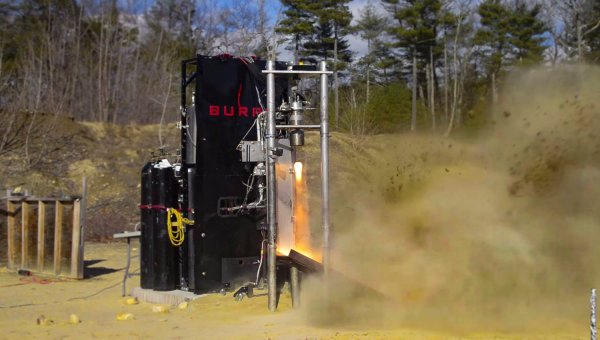A group of students at Boston University recently made a successful test of a powerful rocket engine intended for 100km suborbital flights. Known as the Iron Lotus (although made out of mild steel rather than iron), this test allowed them to perfect the timing and perfect their engine design (also posted to Reddit) which they hope will eventually make them the first collegiate group to send a rocket to space.
Unlike solid rocket fuel designs, this engine is powered by liquid fuel which comes with a ton of challenges to overcome. It is a pressure-fed engine design which involves a pressurized unreactive gas forcing the propellants, in this case isopropanol and N2O, into the combustion chamber. The team used this design to produce 2,553 lb*ft of thrust during this test, which seems to be enough to make this a class P rocket motor. For scale, the highest class in use by amateurs is class S. Their test used mild steel rather than stainless to keep the costs down, but they plan to use a more durable material in the final product.
The Boston University Rocket Propulsion Group is an interesting student organization to keep an eye on. By any stretch of the imagination they are well on their way to getting their rocket design to fly into space. Be sure to check out their other projects as well, and if you’re into amateur rocketry in general there are a lot of interesting things you can do even with class A motors.
Continue reading “Student-Built Rocket Engine Packs A Punch”











